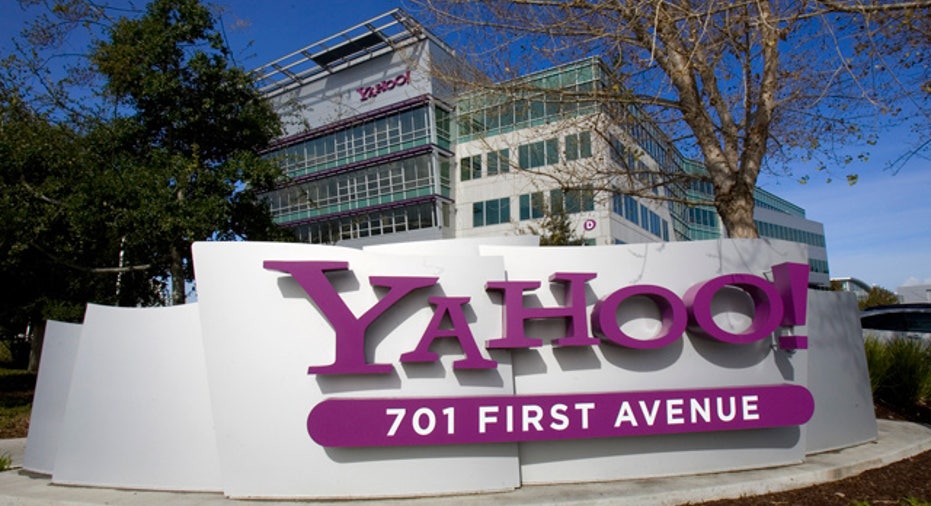Former Exec: Yahoo Never Found Identity With Bartz

What is Yahoo? Most remember it as a search engine. Others probably use it for shopping. Some see it as a mail or messaging service, while others understand it as a news site--an original content provider. And if the company ever manages to acquire Hulu, as rumors have indicated, then who knows what Yahoo will become.
Keep up with the latest in technology with the FOX Business Tech Facebook page.
The problem is that no one actually knows what Yahoo is, including its former CEO Carol Bartz, who got the boot yesterday after nearly three bumpy years trying to turn the company around. During that time, Bartz was unable to crystalize Yahoo's direction and refine its focus--a major reason why the company's revenue continued to decline throughout her tenure.
"The real question has always been around what [Yahoo's] identity is," says Tim Mayer, chief strategy officer of Trada, and a former top executive at Yahoo from 2003 to 2010, who oversaw its search business and North American audience. "How do you create focus when they're doing so many things? A lot of that comes down to making a decision about what you are as well as what you aren't."
The company has long been unable to resolve its true identity. It outsourced its search business to Microsoft; it sold off popular properties like Delicious; and it made plays for original content (with the acquisition of Associated Content), mobile, and social (IntoNow). Here's Bartz's vision for the company, via her 2010 interview with TechCrunch:
Listen Yahoo is a great company that is very, very strong in content for its users, uses amazing technology to serve up what increasingly we think is going to be the web of one. For instance, on our today module in the front page, every 5 minutes we have 32,000 different variations of that module. So you dont even know what Im seeing in fact we serve a million different front page modules a day and thats just through content optimization. And thats just the beginning&Customized because we know the things youre interested in. Maybe you dont like light entertainment maybe you like a certain sports team, etc., etc. And our click through rate went up twice. So the point is, people come to us to find out what is going on with the world in a very nice quick fashion to do their communications, email, messenger, check-in on their teens. We all know about Yahoo finance. Its a places where you can just get it together. Its collated for you, its all the things as youre moving, you can even get your social information there. Everybody moves through many websites in a day, Yahoo is one they always stop at.
Later that year, after being criticized for her rambling and confusing answer, Bartz tried again to explain Yahoo, this time at the Web 2.0 Summit in San Francisco:
"Maybe it's taken me two years, but I've got it: Yahoo is actually a simple story," Bartz said. "We're a tech company, innovative. We're the largest content communication company in the world&Yahoo has stood for a lot in the Internet. It has stood for fun, it has stood for relevance. It has stood for context around information. Has it had some tough years, sure? I think companies can be tested, and companies pick themselves up when they've had some challenges, and that's what Yahoo is doing."
Despite widespread criticism of the company, Yahoo remains one of the most popular Internet properties in the world in terms of traffic, second only to Google and ahead of Microsoft, Facebook, and AOL, according to ComScore. That reach is of course valuable, but only if Yahoo can decide its focus--as Mayer explains, the Internet is shifting away from central online destinations and hubs, and more toward specialization, which could spell trouble for Yahoo.
"A lot of it comes down to how Yahoo started," Mayer says. "Initially on the Internet, a lot of the offline brands weren't online. So Yahoo developed Yahoo Sports when ESPN wasn't online. Then they developed Yahoo News when CNN wasn't online. But when these big offline brands came online, they just had a much larger footprint of reporters and infrastructure in these properties to compete with. They have lot of these businesses where they're competing against these huge brands and businesses with lots more writers and infrastructure and specialization. The Internet is moving from generic to a place where people go to best of breed providers. They go to Amazon for shopping; they got ESPN for sports; they go to CNN for news."
In other words, he continues, we're seeing the "app-ification" of the web, "where people are interfacing with best of breed providers rather than that convenient portal play."
What Yahoo must learn--and what Bartz never realized--is that Yahoo can't be everything (news, social, mobile, communication, search, etc.) to everyone anymore.
Unfortunately for Bartz, we don't, uh, Yahoo like that any longer.
This content was originally published on FastCompany.com
 More news from Fast Company: - Eric Ries Is A Lean Startup Machine - Inside Walmart's Super Social Shopping Agenda, Or Keeping Up With The Digital Joneses - China Knows It Must Innovate. But Can It?
More news from Fast Company: - Eric Ries Is A Lean Startup Machine - Inside Walmart's Super Social Shopping Agenda, Or Keeping Up With The Digital Joneses - China Knows It Must Innovate. But Can It?



















